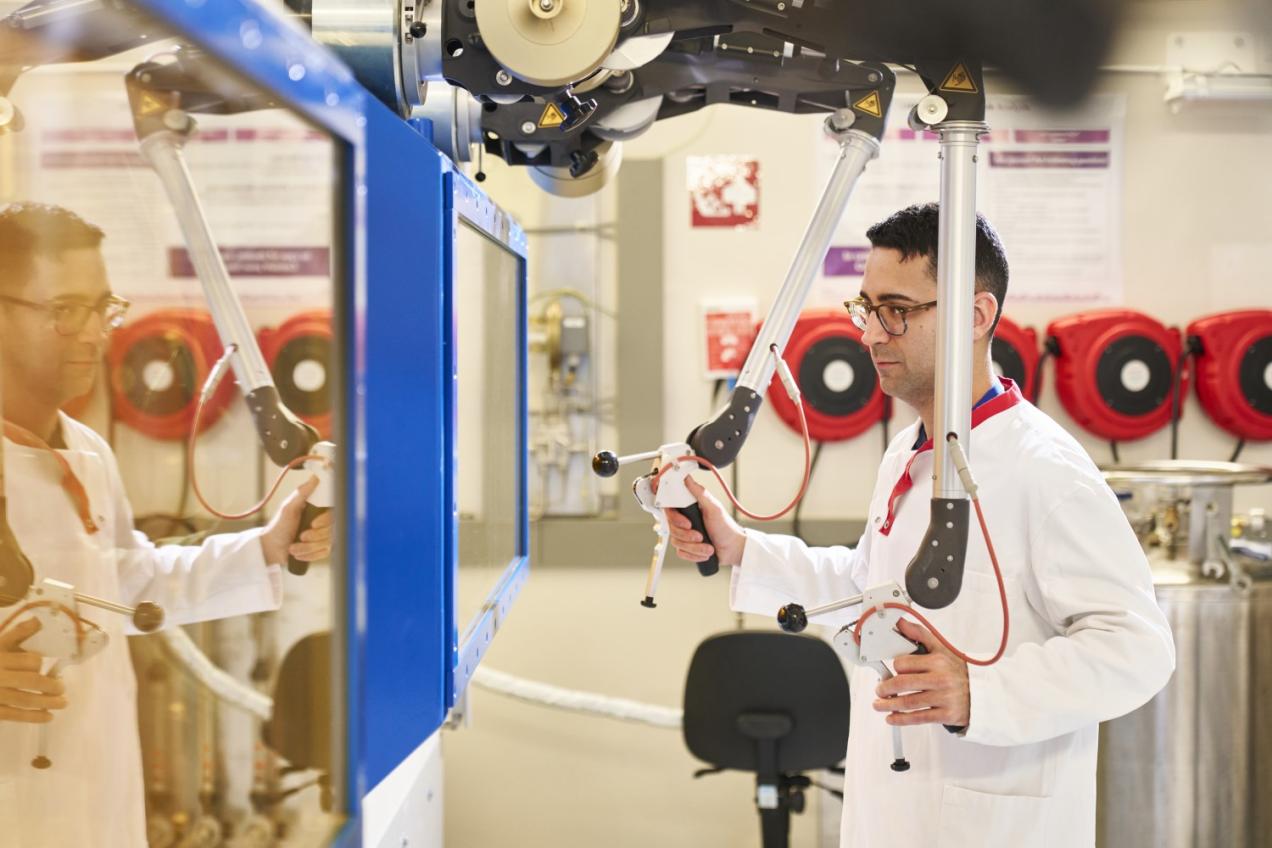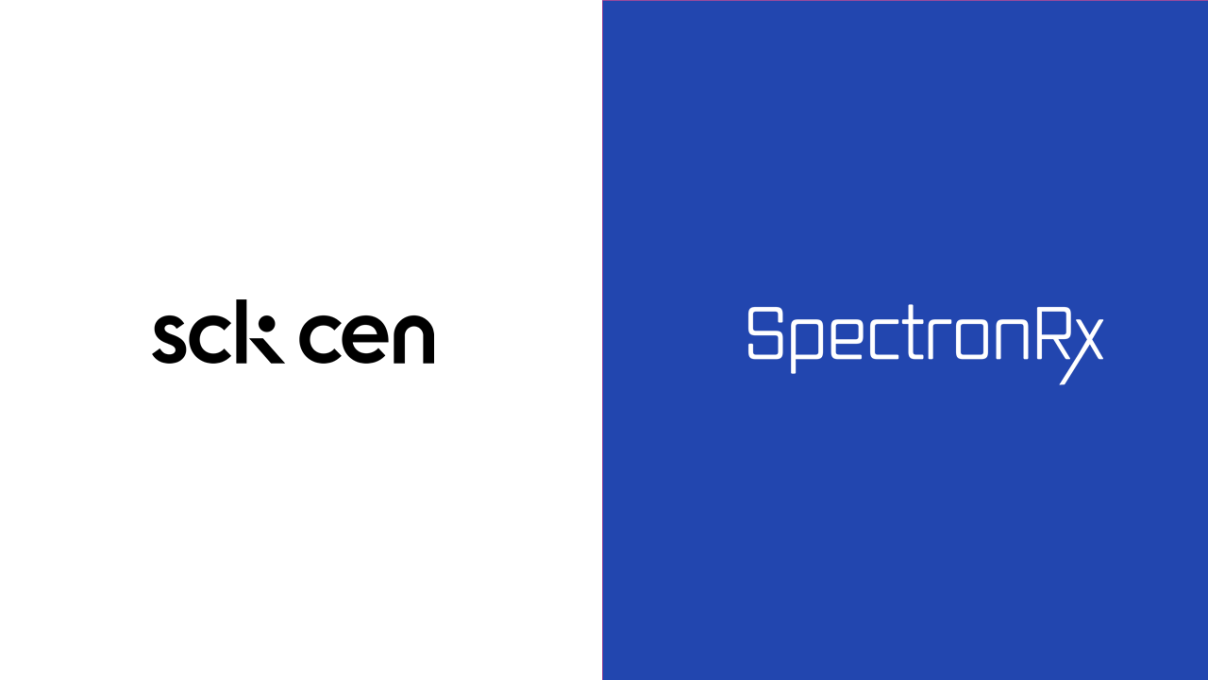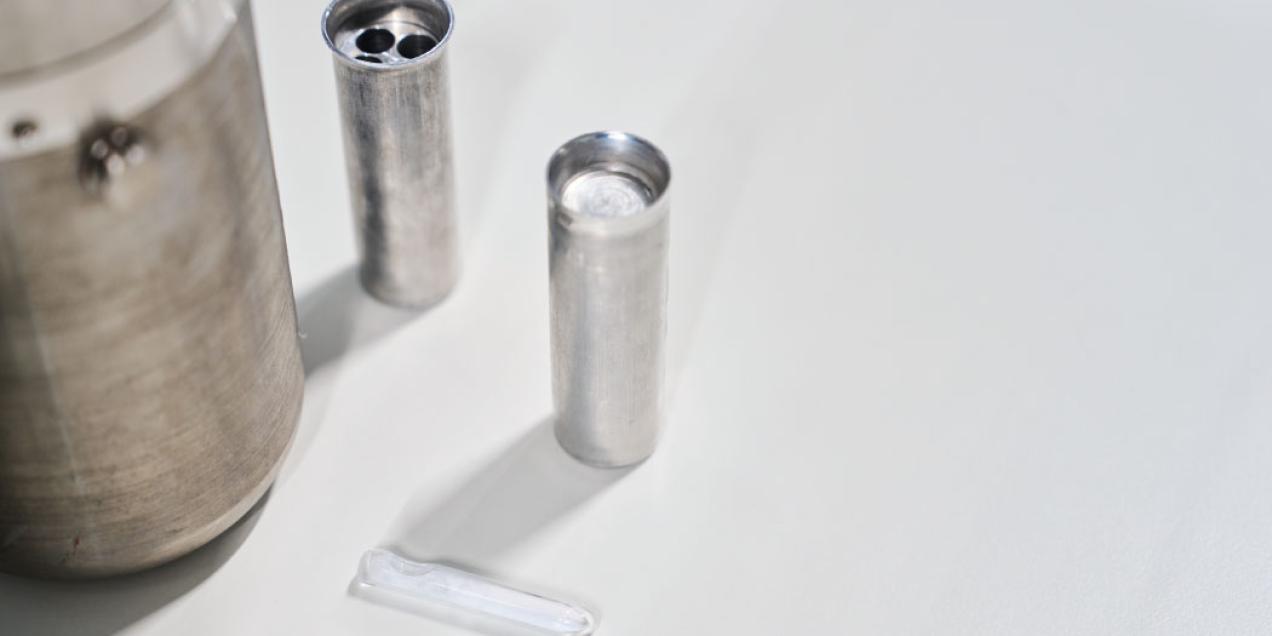The United States and Belgium partner to accelerate the fight against cancer
SpectronRx will open its first European facility on SCK CEN’s premises
US-Based SpectronRx will open its first European radiolabeling facility for sorely needed medical radioisotopes. This facility will be established on the premises of the Belgian Nuclear Research Center SCK CEN in Mol, Belgium. It will be operational in 2024 and will focus on actinium-225. This promising therapeutic radioisotope shows great potential in the treatment of cancer.

The 'European Week Against Cancer’ takes place every year, from 25 to 31 May. That week draws attention to the European ‘beating cancer plan’ and everyone who plays a role in accelerating its implementation. With that plan, Europe aims to reverse the rise of cancer. It therefore addresses all aspects of cancer: from prevention and diagnosis to new treatments and drugs. #EWAC also addresses the topic 'access to treatment'.
The American company SpectronRx plays an essential role in the development and manufacturing of radiopharmaceuticals to be used in the treatment of cancer. This contribution is made possible by its strong expertise in all scales of radiopharmaceutical development, from initial conjugations and radiolabeling – the process of coupling a radioactive material to a molecule – to scale-up and distribution. SpectronRx also has the capacity to run clinical trials. And although SpectronRx is backed by decades of experience, it wasn’t until last year that the radiopharmaceutical company earned the EMA seal of approval to send its life-saving nuclear meds across the pond to Europe.

“Gaining EMA approval was a critical step in fulfilling our ambition to supply Europe with much-needed diagnostic and therapeutic radiopharmaceuticals,” says John Zehner, SpectronRx CEO. “Medical radioisotopes are in short supply in many many places, and European patients deserve to have access to them. That’s why our partnership with SCK CEN is so important.”
SpectronRx is arguably the leader in this space in the US market and is closing the geographical gap between America and Europe for the benefit of European patients. That’s why it has invested in gaining a foothold on European soil. And in its search for an operating base in Europe, the company decided on Belgium.
“Belgium, and more specifically SCK CEN, was an easy choice,” said Anwer Rizvi, President of SpectronRx. “The Belgian Nuclear Research Center is globally known as one of the leading producers of medical radioisotopes. And it already had plans to actively research therapeutic radioisotopes. Furthermore, we hold a common mission: we both aim to accelerate the fight against cancer.”
Cooperation
“Cooperation is the way forward to providing better outcomes for cancer patients,” said Koen Hasaers, Director of Nuclear Medical Applications at SCK CEN. “We are therefore happy to welcome activities for SpectronRx on our premises.”
Both organizations have recently made their cooperation official by signing a Memorandum of Understanding (MOU). In the MOU, it is agreed that SpectronRx will provide state-of-the-art equipment and a Quality System with GMP-qualified procedures, whereas SCK CEN will supply the necessary resources to meet the development objectives. “Our researchers and lab technicians will handle the radiolabeling,” added Koen Hasaers (SCK CEN). The brand-new facility will be operational by 2024 and focus on the labeling of actinium-225 radiopharmaceuticals for therapy.

Eliminating cancer
Actinium-225 possesses the resounding potential to treat cancers effectively. Initial research results show that the therapeutic radioisotope eliminates cancer cells rather than just inhibiting tumor growth. The risk of recurrence also appears to decrease. To date, extensive preclinical research, as well as numerous clinical studies, are underway which aim to tackle both high prevalence cancers including prostate, lung, colon, breast, pancreas, blood (leukemia and other rare forms), and kidney cancers, but also rarer forms of cancer like glioblastoma, the deadliest form of a very invasive brain cancer.
First stepping-stone
Both partners perceive this agreement as a first stepping stone, as they are already exploring possibilities to address more patients. “Actinium-225 needs are receiving critical attention from many. With the current promising research results, we are convinced that research and development of this radiopharmaceutical will quickly grow in the years to come. As said before, our mission is to accelerate the fight against cancer: we want to keep this promise even in the face of the growing demand for patients”, concludes Koen Hasaers (SCK CEN). Broadening the isotope portfolio is also on the table.
Main ingredients in life-saving nuclear meds
Radiopharmaceuticals have two main ingredients: specially designed molecules to seek out cancer cells and a radioactive material. When attached to each other, these isotope-powered radiopharmaceuticals can selectively target cancer cells and irradiate them without affecting healthy tissues. The cancer cells are damaged, causing them to die off and the tumor itself eventually shrinks.

